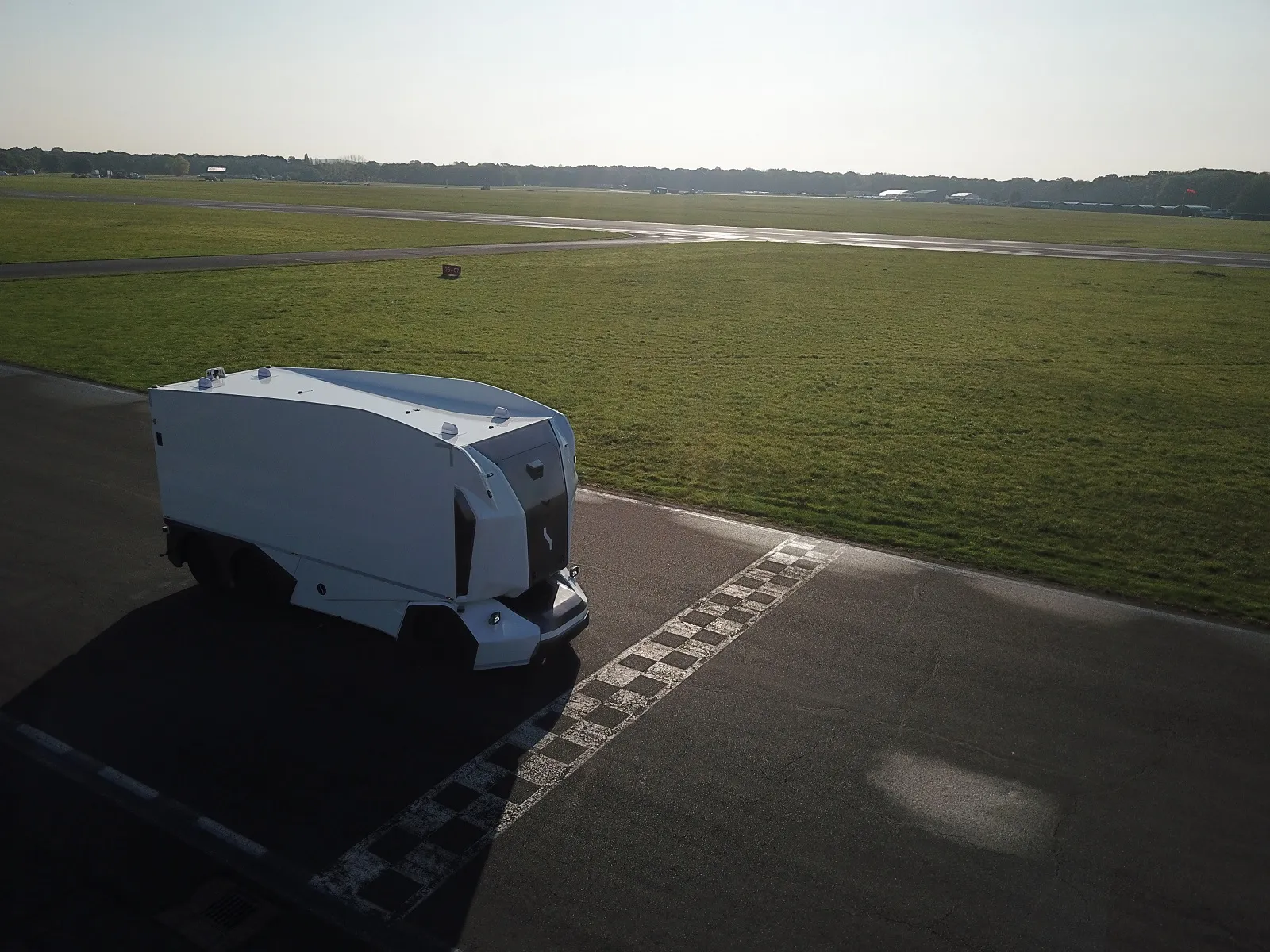
TV programme Top Gear has showcased some of the fastest vehicles in the world.
One of the latest to go through its paces on the show’s famous test track at Dunsfold Aerodrome in Surrey, UK, only got up to around 80km/h – but the Einride Pod is not a supercar.
It is the first autonomous electric heavy freight vehicle to set a lap time (02.44.14) – and while this is more than a minute and a half slower than Top Gear’s fastest-ever lap (by the Ferrari SF90 Stradale), that was not the point.
Einride used the opportunity to demonstrate its vehicle can be operated at the heavy goods vehicle speed limit for the European Union, which will be important when it comes to AET 4 autonomous operation, on which the company is working.
Pods capable of being used on highways will be delivered by 2023, Einride insists.
CEO Robert Falck says: “Operating an autonomous and electric transport vehicle at this type of speed and in these conditions is a major achievement, and one that shows our technology is prepared to meet a wide range of typical freight operating conditions.”
Falck said the lap was the company’s way “of showing the world that we are ready to scale this technology, commercially and in terms of capability”.
“This is a major milestone and shows how far this technology has evolved,” says Pär Degerman, CTO of Einride.
“This showcase gives us the confidence to start to expand and deploy this technology in a new context.”







